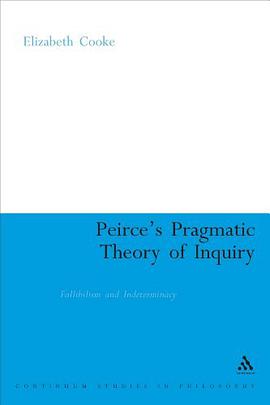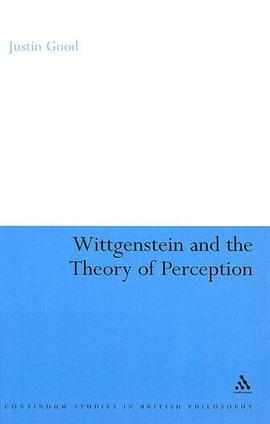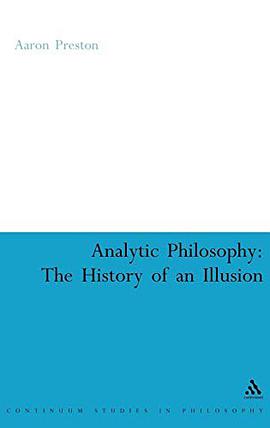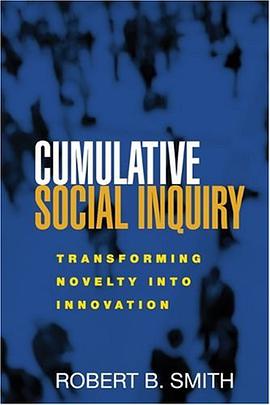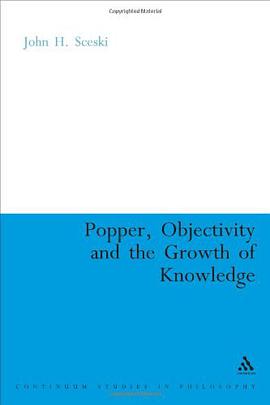

具体描述
John H. Sceski argues that Karl Popper's philosophy offers a radical treatment of objectivity that can reconcile freedom and progress in a manner that preserves the best elements of the Enlightenment tradition. His book traces the development of Popper's account of objectivity by examining his original contributions to key issues in the philosophy of science. Popper's early confrontation with logical positivism, his rarely discussed four-fold treatment of the problem of induction, and his theory of propensities and evolutionary epistemology are linked in a novel way to produce a coherent and philosophically relevant picture of objectivity. Sceski also explores and clarifies many central issues in the philosophy of science such as probabilistic support, verisimilitude, and the relationship between special relativity and indeterminism. He concludes that Popper's account of objectivity can best bridge the gap between Enlightenment aims for science and freedom and post-modern misgivings about 'truth', by developing a philosophy that is non-foundationalist yet able to account for the growth of knowledge.
作者简介
目录信息
读后感
评分
评分
评分
评分
用户评价
这本书的行文风格,老实说,相当具有挑战性,它不像那些畅销的科普读物那样试图用轻松的笔调来解释晦涩的理论,而是直截了当地将读者抛入波普尔哲学思辨的核心。我花了相当大的精力去消化其中关于“世界三”与社会知识演化之间的微妙联系。作者对逻辑演绎的运用达到了炉火纯青的地步,每一个论断似乎都建立在坚实的理性基石之上,然而,正是这种看似无可指摘的严密性,反而引发了我更深层次的反思:这种理想化的知识增长模型,在面对人类认知的非理性因素时,是否还能保持其绝对的纯粹性?这本书的真正价值,我认为并不在于提供了最终的答案,而在于它系统性地、甚至有些近乎冷酷地展示了知识建构的内在张力。它像一把手术刀,精准地剖开了我们关于“进步”这一概念的浪漫化想象,迫使我们直面认识论上的那些永恒的困境。对于那些习惯于接受既有范式的读者来说,这本书可能需要反复阅读才能体会其深味。
评分我必须承认,这本书在某些段落的密度极高,需要读者具备一定的哲学背景才能游刃有余地跟上作者的思路。然而,一旦突破了最初的阅读障碍,随之而来的认知愉悦感是难以言喻的。作者对于“偶然性”在知识发现中的作用的论述,尤其令人拍案叫绝。他似乎在为科学的非线性发展提供了一种辩护——知识的飞跃往往不是循规蹈矩的逻辑推导,而是基于大胆猜想和残酷失败的辩证统一。这种对“试错”过程的哲学升华,极大地拓宽了我对科学发现过程的理解。这本书的价值在于,它挑战了那种将科学视为一套机械化、可预测流程的浅薄看法,转而强调了人类心智在面对未知时的那种创造性的、甚至有些鲁莽的冲动。读完此书,我对科学的敬畏感油然而生,因为它不再是一个冰冷的知识集合,而是一个充满活力、不断自我超越的动态系统。
评分这本书最让我印象深刻的一点,是它对于“知识增长”这一宏大命题的解构和重构。作者没有沉溺于对“真理”的形而上学纠缠,而是将焦点放在了知识如何变得“更好”这一操作性更强的问题上。他所描绘的知识增长图景,是一种永无止境的、动态的、由批判驱动的演进过程。这种观点,在充斥着确定性和终极结论的时代背景下,显得尤为珍贵。它提供了一种看待学术生涯和个人成长的全新视角:我们所追求的,并非一次性的“正确答案”,而是持续不断地提出更优良的问题,并构建出更具抵抗力的理论结构。全书的论证逻辑如同一部精密的钟表,每一个齿轮——从批判性思维到客观性标准——都咬合得天衣无缝。这本书不仅是哲学思辨的杰作,更是一部关于如何构建有意义的智识生活的指南。
评分初捧此书,我便被卷入了一场关于科学哲学核心议题的宏大辩论之中。作者似乎并不满足于仅仅梳理卡尔·波普尔既有的思想体系,而是试图以一种近乎挑衅的姿态,去重新审视“客观性”在知识增长过程中的真正地位。书中的论证结构极其严谨,尤其是在探讨证伪主义如何与现实世界的复杂性相调和时,展现出令人耳目一新的洞察力。我特别欣赏作者没有落入将波普尔思想教条化的窠臼,反而巧妙地引入了诸多当代科学实践中的案例,用以检验和打磨这位巨匠的理论锋芒。阅读过程中,我时常感觉自己不是在被动接受信息,而是在与作者进行一场高强度的智力交锋,每当我觉得自己已经把握了作者的论点时,下一页的转折又会将我引向一个更为精微、更具争议性的哲学疆域。这本书对于任何一位严肃对待科学进步机制的学者来说,都是一次不可多得的洗礼。它强迫读者跳出舒适区,去正视那些看似已经被解决、实则暗流涌动的基本问题。
评分作为一名长期关注科学史的爱好者,我发现这本书在处理历史脉络时,展现出一种超越常规的叙事视角。作者并非简单地将波普尔置于逻辑实证主义的对立面,而是将其思想视为一种对人类理性潜能的深刻表达。尤其是在探讨“客观性”时,作者似乎在暗示,真正的客观性并非来自对外部世界的简单镜像,而是一种在批判性检验中不断自我修正和强化的社会实践结果。书中的某些章节,特别是关于科学共同体责任的论述,让我联想到了当代学术界在面对数据可重复性危机时的种种挣扎。作者提出的理论框架,虽然根植于二十世纪中期的哲学土壤,但其对知识伦理的关切,在今天看来,非但没有过时,反而更具紧迫感。这本书的深度在于,它成功地将形而上的哲学探讨,转化为了对我们当下如何进行有效研究和交流的实践指导。
评分 评分 评分 评分 评分相关图书
本站所有内容均为互联网搜索引擎提供的公开搜索信息,本站不存储任何数据与内容,任何内容与数据均与本站无关,如有需要请联系相关搜索引擎包括但不限于百度,google,bing,sogou 等
© 2026 book.wenda123.org All Rights Reserved. 图书目录大全 版权所有


